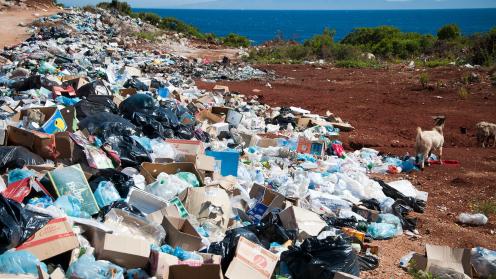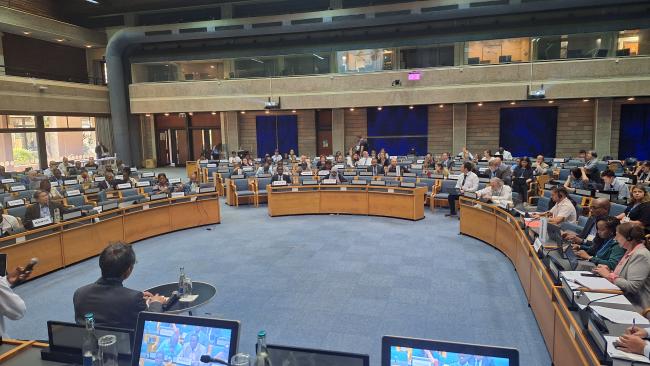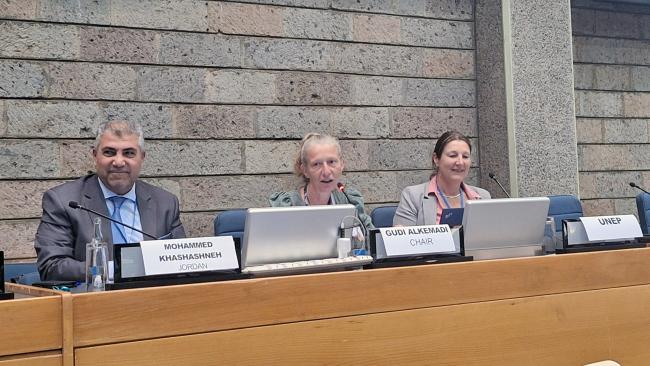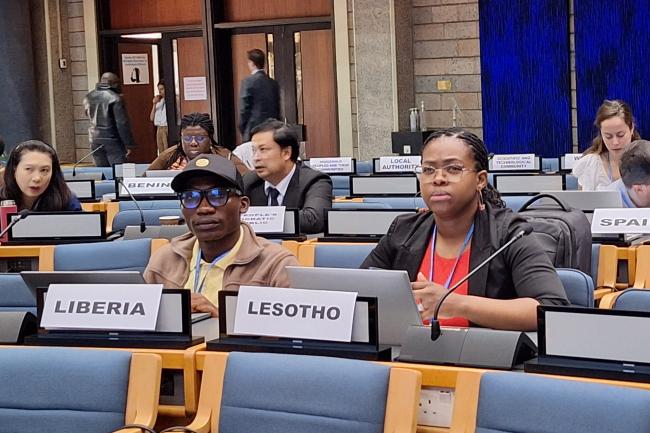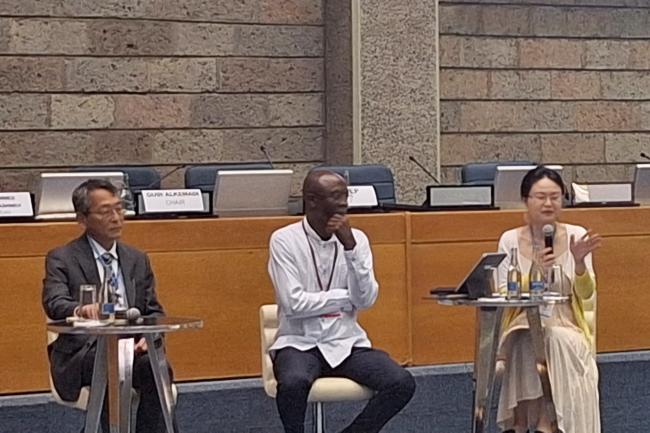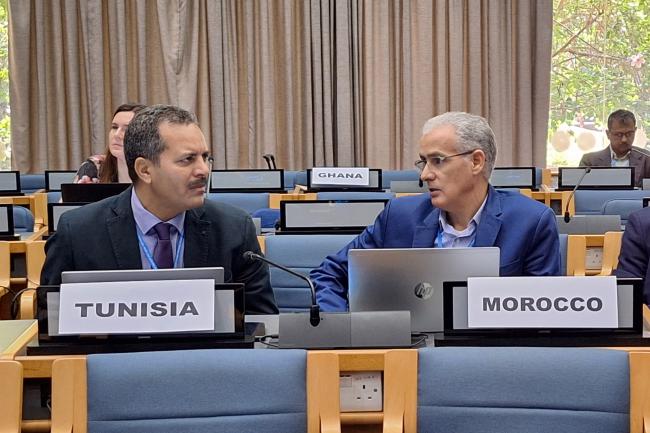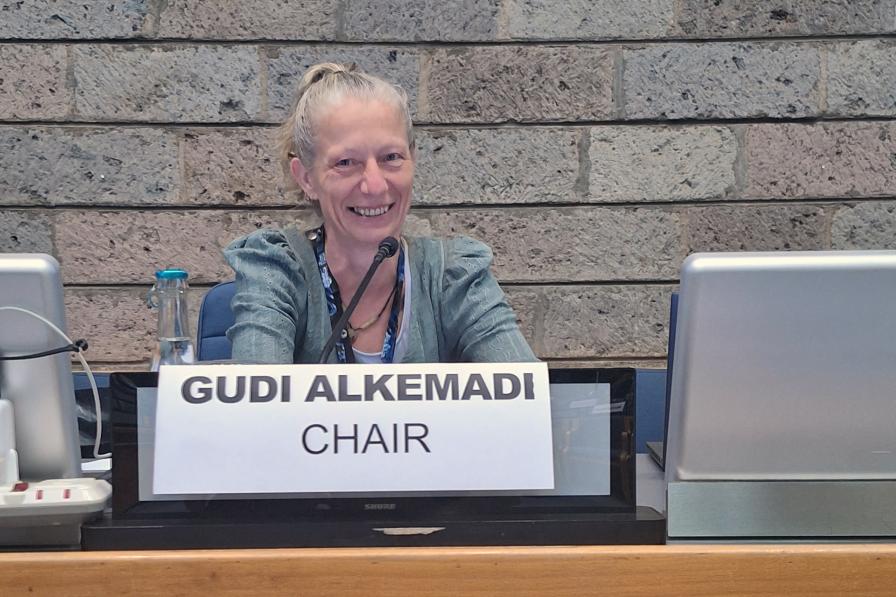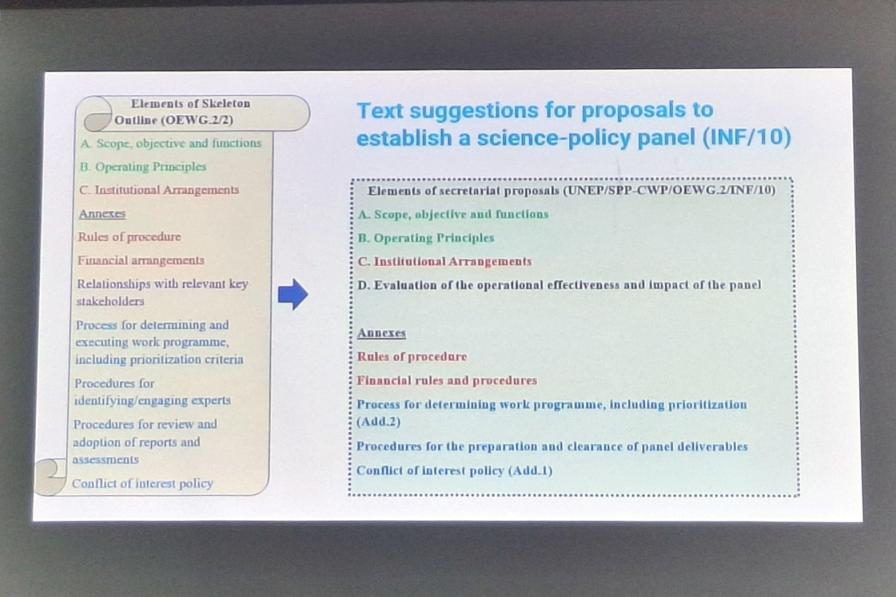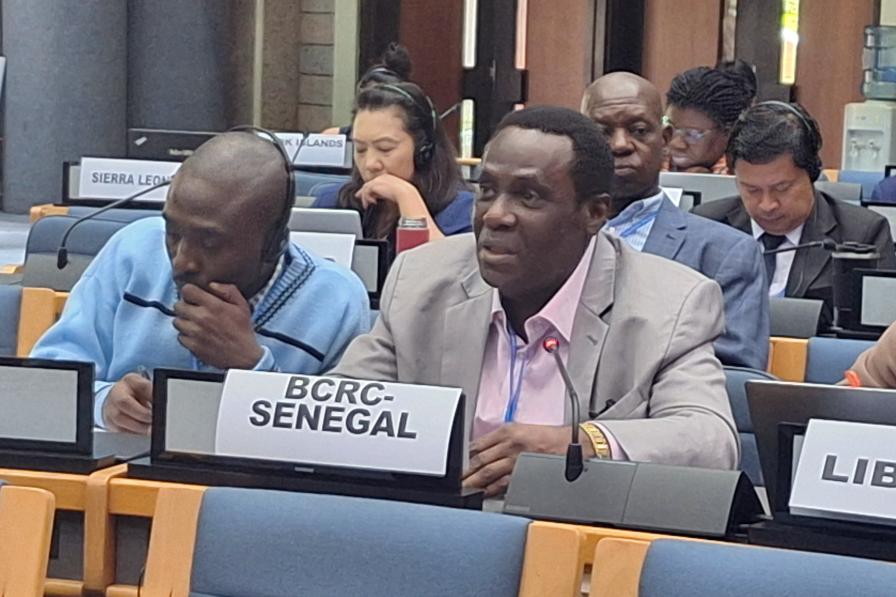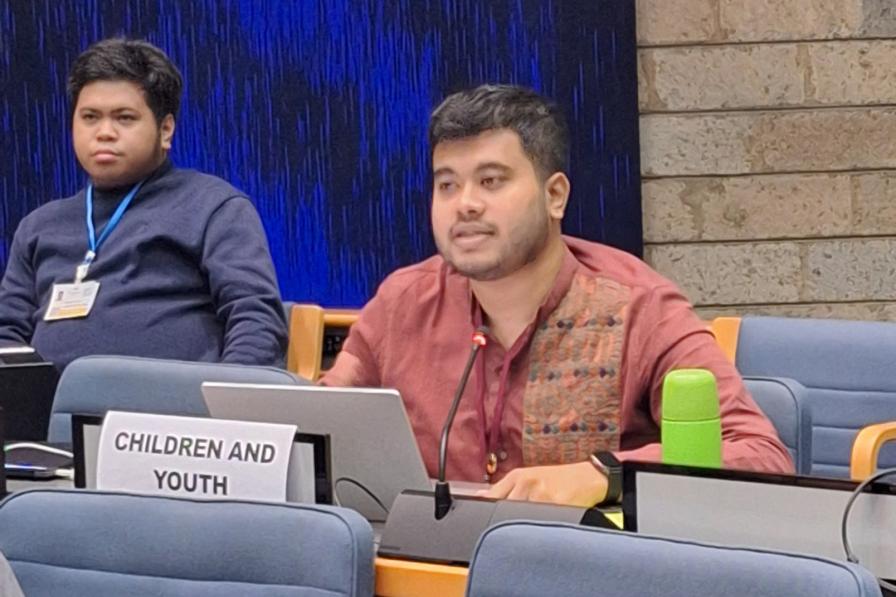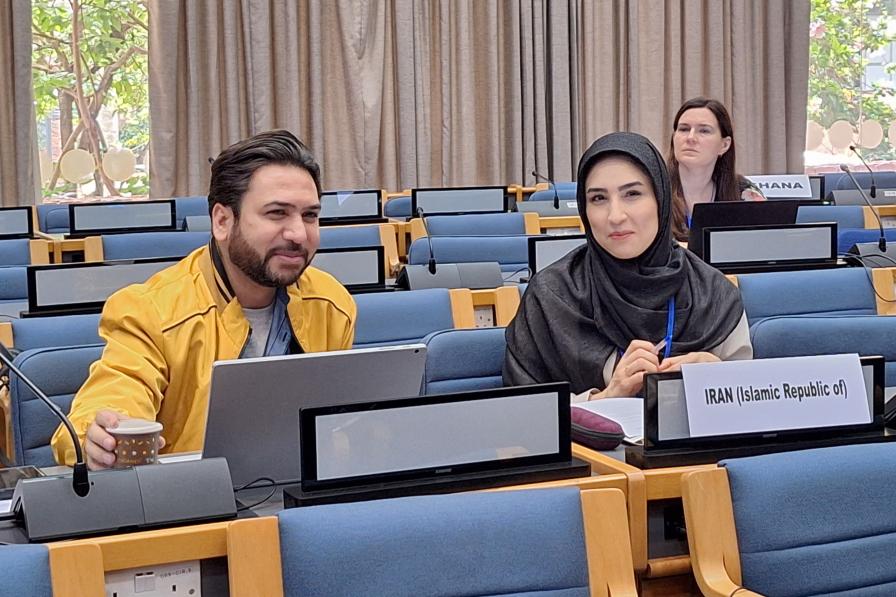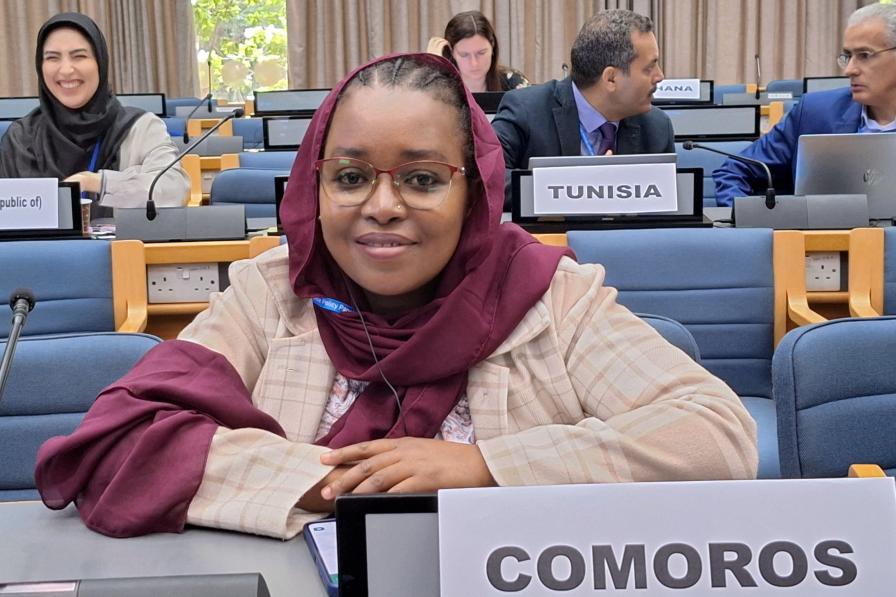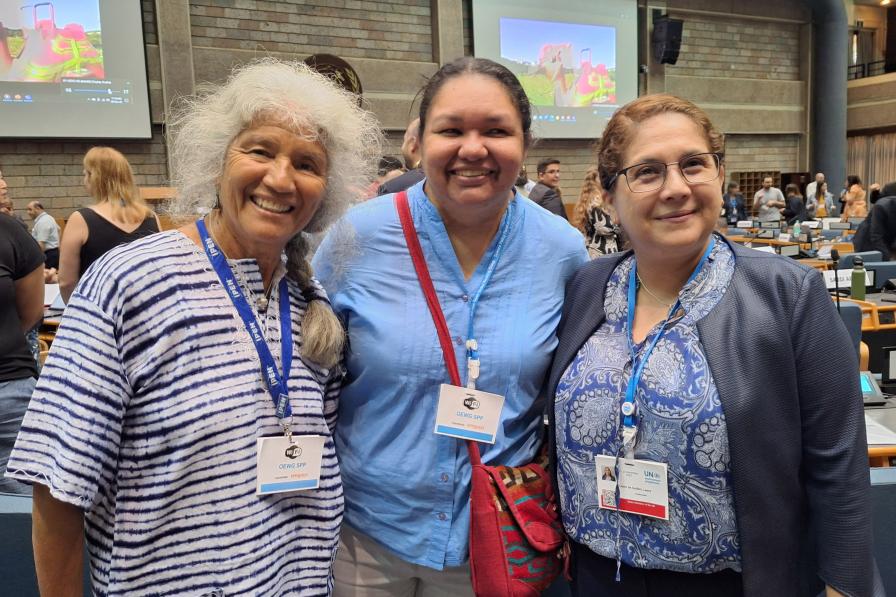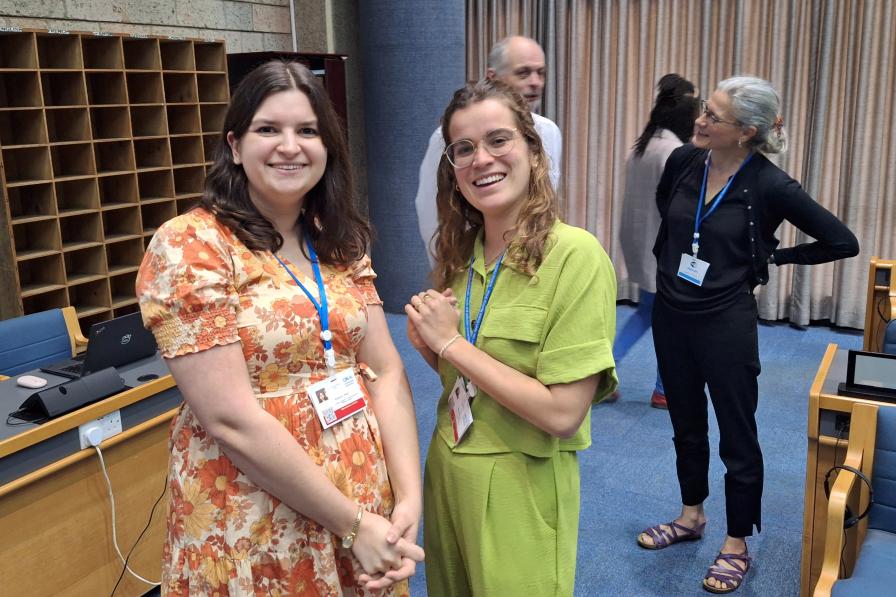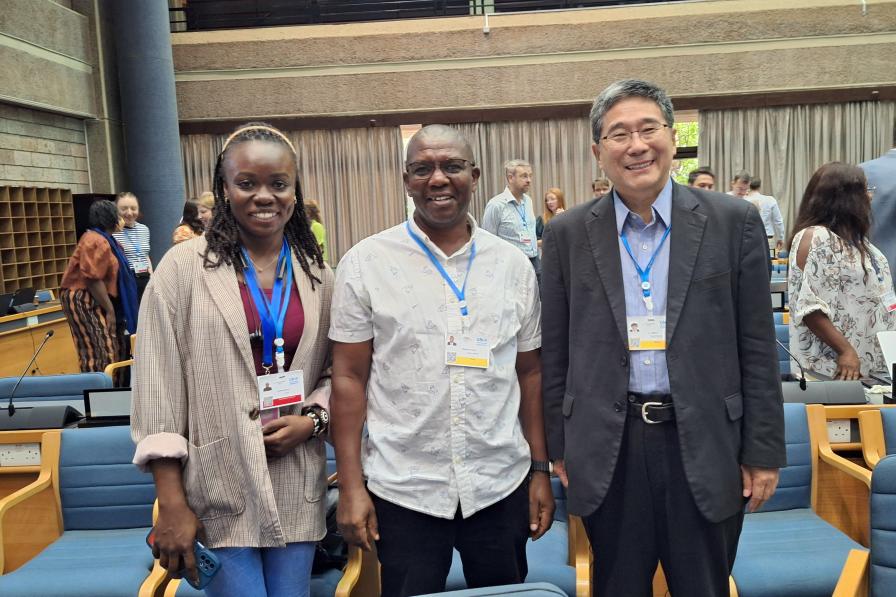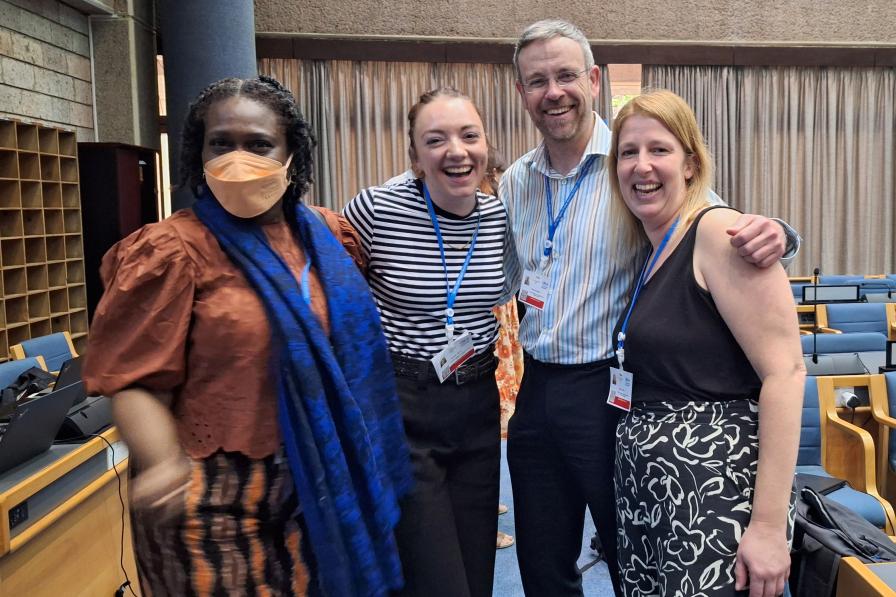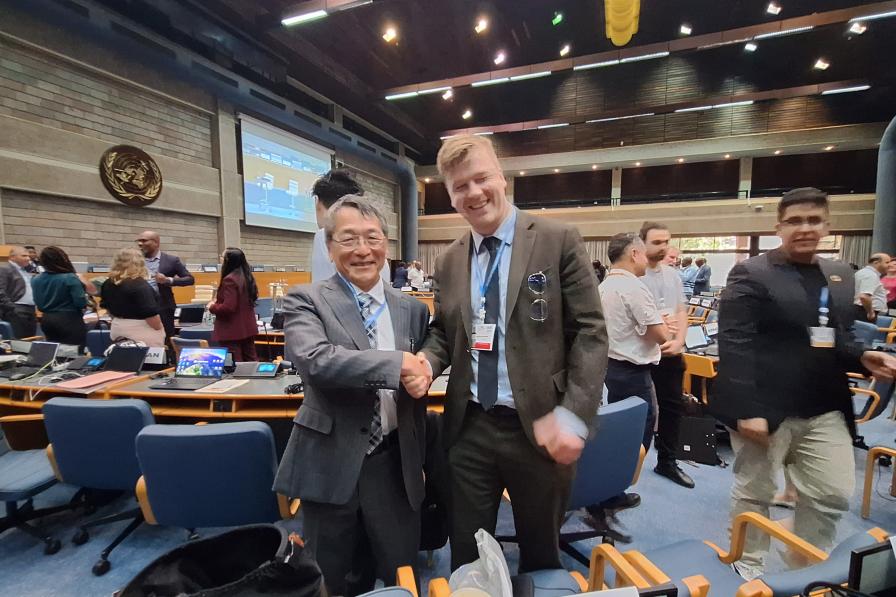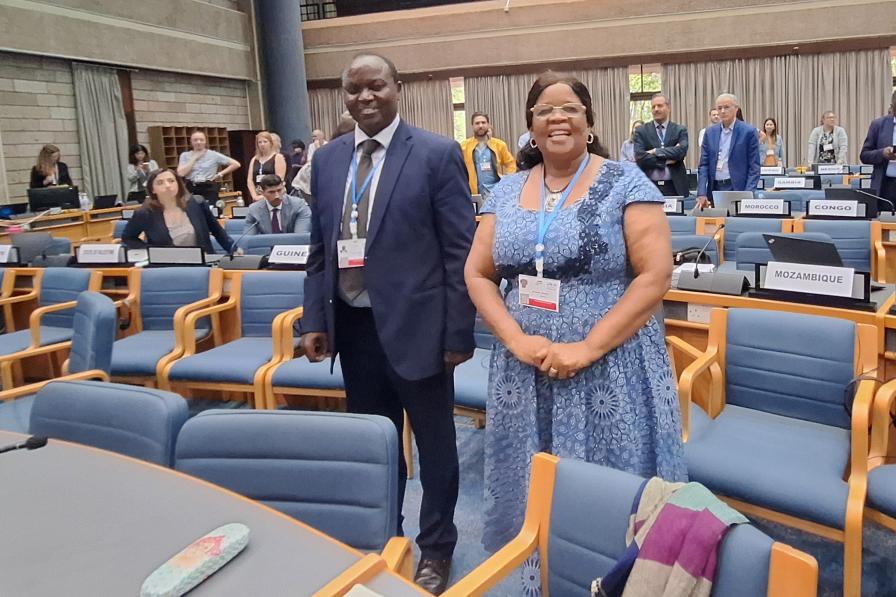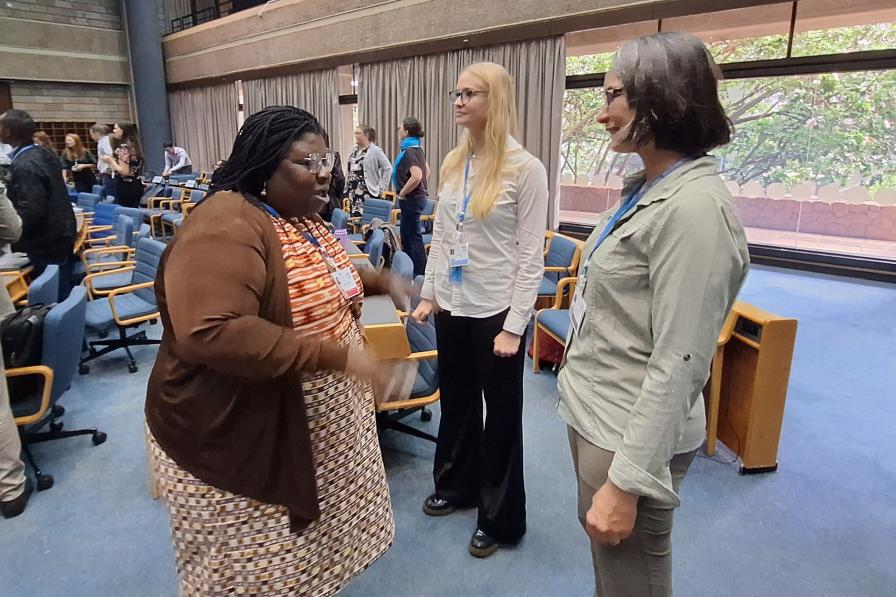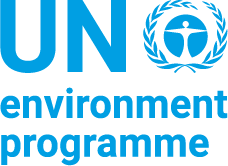Pollution from hazardous chemicals can have serious negative consequences on both natural ecosystems and human health. Without proper management, it affects, among other things, soil and water quality, and can lead to many short- and long-term diseases. Some of the most harmful chemicals are called “forever chemicals” as they do not break down in the environment or human bodies and can be found in a range of products, such as food packaging, clothing, cosmetics, and toilet paper.
Many argue that chemicals, waste, and pollution have not received the same level of attention as climate change and biodiversity loss. In an effort to address this gap, ongoing negotiations under the Open-Ended Working Group on a Science-Policy Panel (OEWG SPP) focus on establishing a global science-policy panel that broadly addresses chemicals, waste, and pollution. An institutionalized science-policy interface will not only provide the appropriate interaction between scientists and policymakers, but also raise awareness, build capacities, and identify emerging issues - all of which are of paramount importance.
Discussions towards OEWG-2 kicked off with an informal meeting, acting as a curtain raiser, and enabling a direct exchange of views prior to the official opening of the meeting on Monday, 11 December 2023.
Gudi Alkemade, Chair, OEWG SPP, opened the informal discussions, calling on participants to take the opportunity to get to know each other better and develop an enhanced understanding of mutual perspectives on the different elements under discussion. She added that the informal setting offers a “free space to exchange ideas and understand each other.”
Mohammed Khashashneh, Secretary General, Ministry of Environment, Jordan, underscored that “the chemicals family needs a practical and strong science-policy panel,” and highlighted important intersessional work following the conclusion of the second part of OEWG-1. He stressed that the informal setting should facilitate a free exchange of views and help advance the negotiations.
Tessa Goverse, Principal Officer, OEWG SPP, presented the expected outcomes of the OEWG towards an SPP to contribute further to the sound management of chemicals and waste and to prevent pollution, reminding participants of UN Environment Assembly (UNEA) resolution 5/8, which established the OEWG SPP. She drew attention to the skeleton outline for proposals for the establishment of a science-policy panel (UNEP/SPP-CWP/OEWG.2/2), containing four main sections on:
- scope, objectives and functions of the panel;
- operating principles;
- institutional arrangements; and
- annexes, including on the rules of procedure, and financial rules and arrangements.
Goverse called for the OEWG to use the meeting to work on proposals to populate this skeleton outline, and pointed to additional working documents that address how the new science-policy panel could interface with existing panels. She also drew attention to the draft text for proposals to establish a science-policy panel (UNEP/SPP-CWP/OEWG.2/INF/10), requested by the bureau.
Sharing initial reflections on the skeleton outline and the draft text, many delegations emphasized that the draft text for proposals offers a good starting point for further discussions. Some called for differentiating between the new science-policy panel and existing panels. One delegation called on the Secretariat to provide more information on which elements could be copied directly from existing panels in order to ease the work of the OEWG. Others, while recognizing existing panels can offer valuable input, cautioned against “a copy-paste exercise,” stressing the need to tackle specific needs in the field of chemicals, waste, and pollution.
Some delegates proposed that the OEWG also begin to prioritize elements within the annex, including rules of procedure, conflict of interest, and financial arrangements. A delegate suggested focusing on elements of scope, function, and operating principles, which provide the foundation for the remaining discussions.
Goverse reminded delegates that, during the second part of OEWG-1, delegates and stakeholders had requested the Secretariat to produce a document on needs and questions the SPP may handle. She highlighted that following 44 submissions, the relevant document (UNEP/SPP/CWP/OEWG.2/INF/9) has been developed to inform the negotiations.
Panel Discussion: Setting the Scene
Santos Virgílio, Ministry of Environment, Angola, moderated the session.
Melissa Wang, Greenpeace International and University of Exeter, shared her experiences at the Persistent Organic Pollutants Review Committee (POPRC) of the Stockholm Convention, the Basel, Rotterdam, and Stockholm (BRS) meetings of the Conferences of the Parties, the Strategic Approach to International Chemicals Management (SAICM), the Intergovernmental Panel on Climate Change (IPCC), and the Intergovernmental Negotiating Committee (INC) on plastic pollution. Wang noted that a credible SPP needs to mobilize and support the scientists who contribute to the global sound management of chemicals, waste, and pollution prevention. She emphasized that, “if we don’t design and implement the science-policy panel properly, science may be ignored or even weaponized,” urging forging a path towards a sustainable, dignified future that affords the necessary safety net to the most vulnerable.
Noriyuki Suzuki, National Institute for Environmental Studies (NIES), Japan, shared his experience as a science expert working with governments in the chemicals and waste field, underlining the need for the new SPP to bring together all scientific views in this area to engender better management of chemicals, waste, and pollution. Welcoming the discussions towards a new science-policy panel, he noted the gaps in the management of hazardous and other substances, stating that no single body covers the entire lifecycle of chemicals. He urged for wide participation, including North-South scientific collaboration, and highlighted the importance of Indigenous and traditional knowledge.
Addressing the issue of what is missing in the governance of the sound management of chemicals, waste, and pollution prevention, some delegates requested clarity on the role of developing county experts in the new science-policy panel.
In the ensuing discussion, delegates and stakeholders discussed, among other things:
- prioritizing scientific data from the Global South, and building national capacities for scientists and policy makers, in particular for developing countries;
- analyzing whether an enabling environment is provided for scientists and addressing “how, where, and by whom” scientific data is generated;
- ways to link the generation of scientific knowledge with decision-making processes, including tackling specific national and regional circumstances;
- integrating traditional and Indigenous knowledge in the work of the panel;
- elevating the role of science and promoting robust science communication to policy makers and the general public, including participation of lay people as part of the panel; and
- addressing the limitations of existing science-policy panels by building an inclusive, interdisciplinary panel that bridges the gap between science and local realities, and providing context-specific solutions under a human rights approach.
In the afternoon, delegates held informal consultations focusing on institutional arrangements, relationships with relevant key stakeholders, and work-related processes and procedures. Discussions on institutional arrangements addressed, among other things, the composition and functions of different bodies, as well as the functions of the Secretariat.
Under the relationships with relevant stakeholders, delegates addressed: stakeholder engagement in the decision-making body and oversight bodies; processes for the nomination and selection of experts, including ways to foster Indigenous and local knowledge; relationships with multilateral environmental agreements; and cooperation with the scientific community, the private sector, and existing science-policy interfaces.
On work-related processes and procedures, deliberations focused on: determining the work programme; identifying experts; analyzing the procedures for review and adoption of reports and assessments; and addressing conflict of interest.
A Youth Consultative Meeting (YCM) also took place throughout the afternoon. YCM participants considered the need to: finalize youth priorities for OEWG-2; coordinate youth interventions; enhance capacities for youth delegates; exchange knowledge and best practices; and establish an intergenerational dialogue.
OEWG-2 officially opens on Monday, 11 December 2023.
To receive free coverage of global environmental events delivered to your inbox, subscribe to the ENB Update newsletter.
All ENB photos are free to use with attribution. For the OEWG SPP, please use: Photo by IISD/ENB | Tallash Kantai
